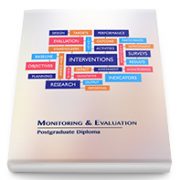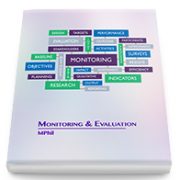Monitoring and Evaluation Studies
We live in an age of fundamental change, with the forces of globalisation and internationalisation generating new economic, social and educational formations. Governments, public corporations and non-government organisations all engage in innovations in order to meet the demands of this new age. This is particularly true of developing countries where the effects of poverty, unemployment, disease and political instability are even more pronounced. In the midst of all this, we find a multitude of social, health, educational and political interventions – programmes, projects, initiatives, campaigns – that are designed and implemented to address the most urgent developmental demands. These interventions are driven by a wide variety of actors within and outside of government and funded by public and private organisations as well as international foundations and agencies. The programmes in M&E have been designed for those who are tasked with the design, management, implementation, monitoring and evaluation of programmes and interventions.
Science and Technology Studies
Science is a human and therefore social endeavour. Scientific research is practised within various institutional contexts: universities, science councils, national research institutes and laboratories, private firms and NGO’s. Scientists form epistemic communities with their rules and norms. They communicate in certain ways and form “citation cultures” that identify bodies of scholarship.
The courses in STS introduces the student to the social, political, economic, epistemological, historical and ethical dimension of science as a complex human system. Our focus is on Africa and South Africa which means that we are particularly interested in topics related to science and development, the nature and formations of research systems in developing countries and ways of measuring knowledge production in conditions of adversity (such as de-institutionalised research systems, lack of national funding, poor research infrastructure and continuing brain drain).







